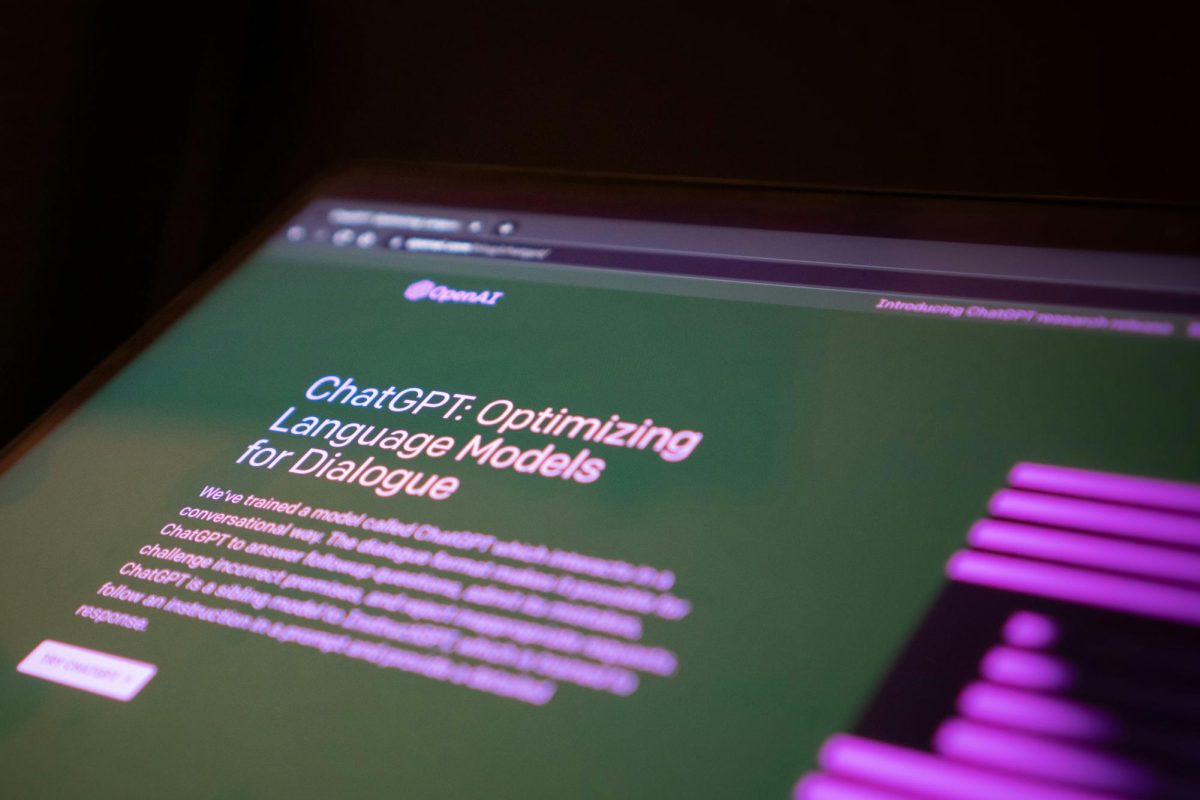Some call Artificial Intelligence (AI) terrifying and world-ending, and some call it the future of the workplace, but perhaps it’s both—a powerful force that could reshape our world in ways we can’t yet fully comprehend.
The journalism workplace has changed in numerous ways ever since the digital age began, and especially recently with all of the new developments in Artificial Intelligence.
Nearly 70% of journalists today already use AI almost every day when transcribing interviews, according to a survey done by the Poynter Institute. Before the rise of AI, the only way to fully transcribe an interview was to listen to a recording and spend hours writing down every single word. But now, apps such as Otter or Fathom record entire conversations and transcribe every word said by each speaker in a matter of minutes. As a result, journalists can get stories out to the public much faster.
However, the same 70% of journalists also use AI to help them write entire drafts, which is considered unethical. Moreover, a big part of a journalist’s job when writing articles is doing a lot of research, and much of that research is done online by looking at numerous sites and research papers. However, with the use of AI, there are whole News sites that are AI-generated. The problem with those news sites is they might have false information, and there have been numerous cases where journalists have been fired due to publishing untrustworthy information.
AI doesn’t only affect the journalism world, and “75% of people are already using AI at work,” according to Microsoft’s Annual Work Trend Index. And “46% of them started it less than six months ago.” For people not in the workplace who still use AI from day to day, “…today’s AI systems influence human decision making at multiple levels: from viewing habits to purchasing decisions, from political opinions to social values,” said Dylan Losey in an article for Virginia Tech.
As of right now, most students keep anything to do with AI “Hush, hush,” said Helen Nielson, a rising senior at the Trinity School in New York City, who aspires to be a journalist. “When it comes to your own writing…AI is never going to produce something as good as you can do it,” she said.
To add on, she said regarding writing something that’s not factual and needs to be creative, we will always be better than AI. Despite that fact, she says AI could be very helpful when students require small summaries of dense textbooks, or need another explanation of a confusing math concept, and these are only a few examples. Overall, she would say that having AI when she enters the workplace would be a helpful asset to her, but can never replace her.
Many schools today, including Nielson’s, have policies against using AI, and check their students’ essays for plagiarism since students have been known to cheat using it, according to Education Week. “Of the more than 200 million writing assignments reviewed by Turnitin’s AI detection tool over the past year, some AI use was detected in about one out of ten assignments, while only three out of every 100 assignments were generated mostly by AI,” Reporter, Ariana Pothero, revealed.
Stephen Slade, a Yale Professor who teaches about computer science and Artificial Intelligence, realizes that a number of his students use AI to complete their work for them, and he does not accept that. On the other hand, he also recognizes that this is nothing new, the only difference in recent years being that instead of friends, siblings, roommates, and even parents doing all the work it’s now highly intelligent robots who do it.
Similarly, former Microsoft manager and current individual contributor, Netta Schwartz thinks “AI can make people lazy…That the human race will stop advancing and can just dwell on current achievements.” Furthermore, she describes that “All you have to do, in order to get AI to answer false answers, is create enough websites that claim something that isn’t true. The bias that existed in the humans that created the AI—now exists in the engine itself.”
While considering the cons of AI, Schwartz still encourages her workers to use it. She uses AI to improve clarity and go over simple mistakes that humans can’t notice so that she can put her mind to the creative work that AI isn’t capable of coming up with. “Beyond [my employees’] regular use of Machine Learning for work, I encourage them to use AI tools to enhance their productivity,” said Amit Moran, who manages the AI/Data organization at Bluevine. “These tools help them write code faster, write better, more comprehensive documents, and research more comprehensively.”
All in all, “In the future, [AI] will be more normalized, but right now it’s on the ledge,” Nielsen said. To prepare for said future, Moran believes in coaching the workforce “to use these tools together with a better understanding of the opportunities, and the limitations and risks involved.”














































































































































